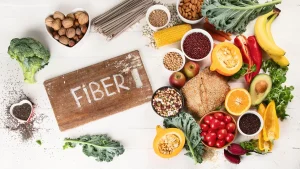Eating seasonal fruits is not just a matter of taste; It’s a lifestyle choice that supports regional agriculture, improves public health, and protects the environment. Thanks to the expansion of the world’s food supply, virtually all fruit is now available year-round. However, there are many benefits to eating seasonal fruits that go beyond just availability. This article explores the many benefits that eating seasonal fruits brings to people, both on an individual and community level.
1. Increase Nutrition
In-season fruits are more nutritious and fresher than out-of-season fruits because they are usually picked at the peak of ripeness. Seasonal fruits contain the highest levels of vitamins, minerals, and antioxidants because they are fully ripe on the plant before harvest. For example, summer berries such as blueberries and strawberries are rich in antioxidants and vitamin C when picked in season. On the other hand, fruits grown out of season may be picked too early to allow long-distance transportation, which affects the quality of the fruit. Reduce their nutritional value.
2. Unique Taste and Texture
The improved taste and texture of seasonal fruits are one of the most obvious benefits of eating them. Because seasonal fruits are picked at the perfect time, they tend to be fresher and have a fuller, richer flavor. The natural ripening process enhances their sweetness and juiciness. For example, few year-round fruits compare to the taste of ripe summer peaches or crisp autumn apples. The taste of fruit improves with freshness, which can significantly impact how much you enjoy your meals and snacks.
3. Environmental Benefits
Eating seasonal fruits can help you reduce your carbon footprint. Choosing seasonal fruits increases the likelihood that you are purchasing locally grown food, minimizing the need for long-distance shipping. Less transportation reduces the use of fossil fuels and greenhouse gas emissions. In addition, artificial inputs such as fertilizers and pesticides are often used in off-season agriculture to create ideal growing conditions but are often less necessary in seasonal agriculture. You can promote environmentally friendly and more sustainable agricultural practices by endorsing the use of seasonal fruits.
4. Financial Support to Local Farmers
Buying seasonal fruit helps community economies and farmers. You’re more likely to find seasonal fruit at a nearby farmer’s market or through a community-supported agriculture initiative (CSA). Local farmers benefit from this direct support and can continue their activities. Supporting local agriculture also promotes economic stability and prosperity by keeping money in the community and helping to create jobs. By choosing seasonal fruits, you can build a stronger, more resilient local food chain.
5. Cost Savings
In general, seasonal fruit is cheaper than out-of-season fruit. There is more fruit in season, so prices are cheaper. Conversely, fruits harvested out of season are generally more expensive due to costs associated with storage, transportation, and artificial growing conditions. For example, it is usually cheaper to buy strawberries in the summer than in the winter. Eating in season allows you to enjoy high-quality fruit without breaking your budget, increasing the availability and affordability of healthy eating.
6. Reduce the Use of Chemicals
To thrive in non-native environments, fruits produced out of season often require more chemical interventions. The increased use of pesticides, herbicides, and fertilizers is an example of this. These substances can have negative effects on the environment and human health. Because seasonal fruit is grown under natural growing conditions, it can often be grown with less chemical input. By choosing seasonal fruits, you promote more organic farming practices and reduce exposure to potentially dangerous chemicals.
7. The Connection Between Culture and Food
Eating seasonal fruits promotes a sense of connection to seasonal culinary practices and the natural rhythms of the year. Fruits specific to each season are often used in dishes and celebrations that reflect that season. For example, fall is the season of apples and pears, which are used extensively in holiday and fall dessert recipes. Berries and stone fruits are plentiful in spring and summer and are ideal for eating fresh, pickled, and summer salads. By tasting seasonal fruits, you can enjoy these gastronomic customs and strengthen your connection with the cycles of nature.
8. Improve Food Safety
Locally grown and consumed seasonal fruits have shorter supply chains, which improves food security. When supply networks are shorter, fruit is less likely to become contaminated during processing and transportation. Additionally, seasonal fruits grown locally are often subject to stricter regulations and community oversight, ensuring higher food safety standards. By choosing seasonal fruit, you reduce the chance of eating contaminated produce and ensure a safer food supply.
Conclusion
In summary, eating seasonal fruits has several benefits, not only limited to personal health, but also environmental sustainability, financial support for nearby farmers, and a stronger connection with nature. For anyone looking to improve nutrition and promote sustainable agriculture, seasonal fruit is a smart choice because it is tastier, healthier, and more affordable. You can prioritize the best fruit each season has to offer and support a more sustainable and healthy food system. For a healthier and better world, embrace the natural bounty of each season and regularly include seasonal fruits in your diet.
FAQs
1. Why are seasonal fruits more nutritious?
Because seasonal fruits are fully ripe on the vine before harvest, they are more nutritious. When fruit ripens naturally, its vitamin, mineral, and antioxidant content is maximized, providing better health benefits than fruit picked too early.
2. What are the environmental benefits of seasonal fruit?
Eating seasonal fruits reduces the need to travel long distances, reducing fossil fuel use and greenhouse gas emissions. In addition, seasonal farming typically uses fewer chemicals (such as fertilizers and pesticides), which is better for the environment.
3. Is seasonal fruit cheap?
Yes, seasonal fruits are usually cheaper because they are more plentiful during the main growing season. Seasonal fruit is an affordable option because of the lower prices resulting from the greater supply.
4. How to discover seasonal fruit?
Checking online websites, grocery stores, and local farmers markets can help you determine which fruits are in season. Many places have seasonal produce charts that indicate when to buy and eat specific fruits.
5. Is seasonal fruit delicious?
Seasonal fruit often tastes better when picked at its highest level of ripeness. This natural ripening process improves their flavor, sweetness, and juiciness, making for a more enjoyable eating experience.




